Filter by
# Debug Box
/var/www/htdocs/pustaka-digital/lib/SearchEngine/SearchBiblioEngine.php:688 "Search Engine Debug 🔎 🪲"
Engine Type ⚙️: "SLiMS\SearchEngine\SearchBiblioEngine"
SQL ⚙️: array:2 [ "count" => "select count(sb.biblio_id) from search_biblio as sb where sb.opac_hide=0 and (sb.call_number LIKE :callnumber)" "query" => "select sb.biblio_id, sb.title, sb.author, sb.topic, sb.image, sb.isbn_issn, sb.publisher, sb.publish_place, sb.publish_year, sb.labels, sb.input_date, sb.edition, sb.collation, sb.series_title, sb.call_number from search_biblio as sb where sb.opac_hide=0 and (sb.call_number LIKE :callnumber) order by sb.last_update desc limit 10 offset 200" ]
Bind Value ⚒️: array:1 [ ":callnumber" => "5%" ]
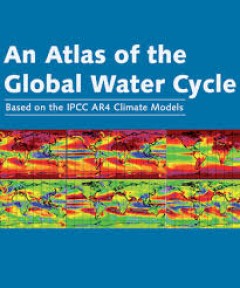
An Atlas on global water cycle
What do climate models predict for the rainfall where you live? What about evaporation or runoff? Should your local community consider constructing new dams or do the existing water storages appear adequate? What about the availability of water for irrigation farming? Do the predictions differ between different climate models or do all the models basically predict the same changes in water avai…
- Edition
- -
- ISBN/ISSN
- 9781921536892
- Collation
- -
- Series Title
- -
- Call Number
- 551.5773 ROD a

Contemporary natural philosophy and philosophies - Part 1
Modern information communication technology eradicates barriers of geographic distances, making the world globally interdependent, but this spatial globalization has not eliminated cultural fragmentation. The Two Cultures of C.P. Snow (that of science–technology and that of humanities) are drifting apart even faster than before, and they themselves crumble into increasingly specialized domain…
- Edition
- -
- ISBN/ISSN
- 9783038978220
- Collation
- 350 p.; 22 cm.
- Series Title
- -
- Call Number
- 501 DOD
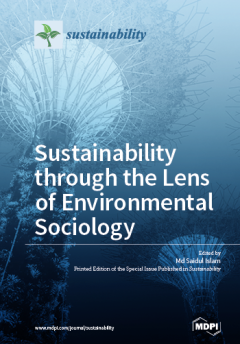
Sustainability through the lens of environmental sociology
Our planet is undergoing radical environmental and social changes. Sustainability has now been put into question by, for example, our consumption patterns, loss of biodiversity, depletion of resources, and exploitative power relations. With apparent ecological and social limits to globalization and development, current levels of consumption are unsustainable, inequitable, and inaccessible to th…
- Edition
- -
- ISBN/ISSN
- 783038426615
- Collation
- vii, 226 p.; 23 cm.
- Series Title
- -
- Call Number
- 599.95 ISL

The eye of the crocodile
Val Plumwood was an eminent environmental philosopher and activist who was prominent in the development of radical ecophilosophy from the early 1970s until her death in 2008. Her book Feminism and the Mastery of Nature (1992) has become a classic. In 1985 she was attacked by a crocodile while kayaking alone in the Kakadu national park in the Northern Territory. She was death rolled three times …
- Edition
- -
- ISBN/ISSN
- 9781922144171
- Collation
- x, 99p. : ill.
- Series Title
- -
- Call Number
- 591.53 PLU t
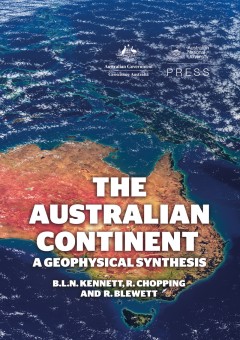
The Australian continent : a geophysical synthesis
The Australian Continent: A Geophysical Synthesis is designed to provide a summary of the character of the Australian continent through the extensive information available at the continental scale, as a contribution to the understanding of Australia's lithospheric architecture and its evolution. The results build on the extensive databases assembled at Geoscience Australia, particularly for pot…
- Edition
- -
- ISBN/ISSN
- 9781760462475
- Collation
- iii, 133p. : ill.
- Series Title
- -
- Call Number
- 551.13 KEN t

Biological invasions in South Africa
This open access volume presents a comprehensive account of all aspects of biological invasions in South Africa, where research has been conducted over more than three decades, and where bold initiatives have been implemented in attempts to control invasions and to reduce their ecological, economic and social effects. It covers a broad range of themes, including history, policy development and …
- Edition
- -
- ISBN/ISSN
- 9783030323943
- Collation
- xxiv, 975p. : ill.
- Series Title
- -
- Call Number
- 577.18 BIO b

Evidence-based medicine - a paradigm ready to be challenged? : how scientific…
This open access book aims to clarify the term „evidence-based medicine“ (EBM) from a philosophy of science perspective. The author, Marie-Caroline Schulte discusses the importance of evi-dence in medical research and practice with a focus on the ethical and methodological prob-lems of EBM. The claims that EBM can herald a new theory of epistemology and a Kuhnian paradigm will be refuted. T…
- Edition
- -
- ISBN/ISSN
- 9783476057037
- Collation
- viii, 148p. : ill.
- Series Title
- -
- Call Number
- 501 SCH e
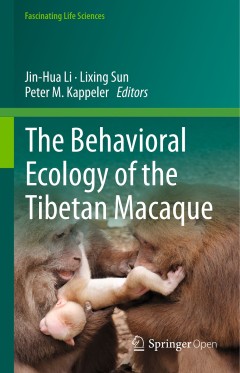
The behavioral ecology of the Tibetan macaque
This open access book summarizes the multi-disciplinary results of one of China’s main primatological research projects on the endemic Tibetan macaque (Macaca thibetana), which had continued for over 30 years, but which had never been reported on systematically. Dedicated to this exceptional Old World monkey, this book makes the work of Chinese primatologists on the social behavior, cooperati…
- Edition
- -
- ISBN/ISSN
- 9783030279202
- Collation
- xvi, 299p. : ill.
- Series Title
- -
- Call Number
- 599.82 BEH b
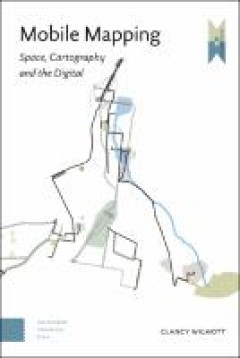
Mobile mapping : space, cartography and the digital
This book argues for a theory of mobile mapping, a situated and spatial approach towards researching how everyday digital mobile media practices are bound up in global systems of knowledge and power. Drawing from literature in media studies and geography - and the work of Michel Foucault and Doreen Massey - it examines how geographical and historical material, social, and cultural conditions ar…
- Edition
- -
- ISBN/ISSN
- 9789048535217
- Collation
- 348 p.
- Series Title
- -
- Call Number
- 526 WIL m
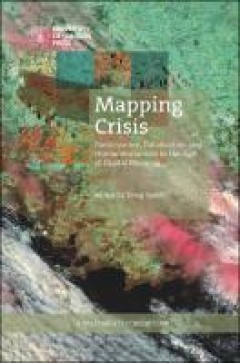
Mapping crisis: participation, datafication and humanitarianism in the age of…
The digital age has thrown questions of representation, participation and humanitarianism back to the fore, as machine learning, algorithms and big data centres take over the process of mapping the subjugated and subaltern. Since the rise of Google Earth in 2005, there has been an explosion in the use of mapping tools to quantify and assess the needs of those in crisis, including those affected…
- Edition
- -
- ISBN/ISSN
- 9781912250387
- Collation
- xviii, 259p.: ill
- Series Title
- -
- Call Number
- 526 MAP m
 Computer Science, Information & General Works
Computer Science, Information & General Works  Philosophy & Psychology
Philosophy & Psychology  Religion
Religion  Social Sciences
Social Sciences  Language
Language  Pure Science
Pure Science  Applied Sciences
Applied Sciences  Art & Recreation
Art & Recreation  Literature
Literature  History & Geography
History & Geography